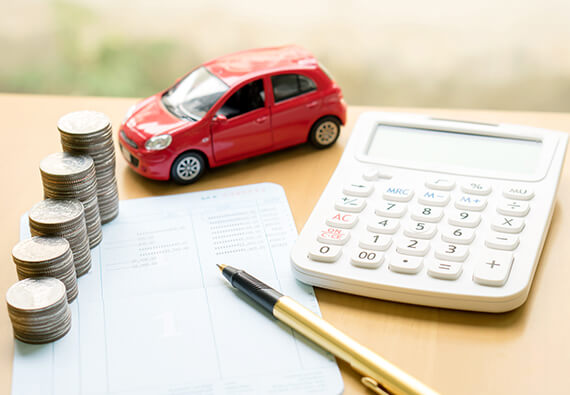To help you on your new car-buying journey, we've highlighted the options for financing a new car. As with any major purchase, it's important to consider the different ways we can get a new set of wheels on the driveway and the pros and cons of each.
Our guide will help you choose the best fit for your needs and budget.
Personal loan
You can apply for a loan from a bank or credit union to purchase a car. This option allows you to borrow and repay a lump sum over a set period, typically 1-5 years. You must have a good credit score and meet specific eligibility criteria for the lender to approve a personal loan.
Pros:
- Flexibility: You can use a personal loan to purchase a car from a private seller or a dealership, and you are not tied to any specific dealer or make and model of car.
- Lower interest rates: Personal loans can offer lower interest rates than other forms of car financing, such as hire purchase or PCP.
- No deposit: With a personal loan, you may not need to make a deposit, which can be helpful if you have little money saved.
- No mileage limits: Unlike leasing and PCP, which typically have mileage limits, a personal loan allows you to drive as much as you want as you own the car from the start.
Cons:
- Higher monthly payments: Personal loans are sometimes shorter-term loans, so your monthly payments may be higher than with other forms of car financing.
- Credit score requirements: You will need a good credit score to qualify for a personal loan. If you have a poor credit history, you may not be approved, or the lender may offer a higher interest rate.
- No added benefits: Some forms of car financing, such as PCP, offer added benefits like free servicing. Personal loans do not provide any such benefits.

Hire purchase
This is a popular option for financing a car in Ireland. With hire purchase, you make regular payments to a finance company over a fixed period (usually 2-5 years), and at the end of the term, you own the car. The car is collateral for the loan so you may get a lower interest rate than a personal loan.
Pros:
- Easy to obtain: Hire purchase is a common form of car financing in Ireland, and many dealerships offer it. It can be easier to get than a personal loan, as the car serves as collateral for the loan.
- Fixed monthly payments: With hire purchase, your monthly payments are fixed, making it easier to budget for the cost of the car.
- Ownership: Once you have made all the payments, you own the car outright, which can be a valuable asset.
Cons:
- Higher interest rates: Hire purchase loans may have higher interest rates than other forms of car financing, such as PCP.
- Repossession: If you miss payments on your hire purchase agreement, the lender may repossess the car, which can be a serious financial setback.
Personal Contract Plan (PCP)
PCP is a type of car finance that allows you to make lower monthly payments by deferring a portion of the car's value until the end of the agreement. You can then pay the deferred amount (also known as the balloon payment) and either keep the vehicle, trade it in for a new one, or return the car to the dealer.
Pros:
- Lower monthly payments: PCP typically offers lower monthly payments than other forms of car financing, such as hire purchase, because you defer a portion of the car's value until the end of the agreement.
- Flexibility: PCP allows you to upgrade to a new car at the end of the agreement, or you can pay the deferred amount (also known as the balloon payment) and keep the car.
- Other benefits: Some PCP agreements include benefits such as free servicing.
Cons:
- Mileage limits: PCP agreements typically have mileage limits, which can be problematic if you drive a lot.
- Balloon payment: You must make a balloon payment at the end of the agreement if you want to keep the car. If you can't pay, you will have to return the vehicle or start a new agreement on a new car.
- Depreciation: Though a car’s depreciation is built into the PCP calculations, it is possible that it will depreciate more than estimated, in which case there may be no equity in the car at the end of the agreement.
- Complexity: PCP agreements can be complex, and it can be difficult to understand all the terms and conditions.

Leasing
Leasing is another option for financing a car in Ireland. With a lease, you rent the car for a fixed period and make monthly payments. At the end of the lease, you return the vehicle to the leasing company.
Pros:
- Low deposit: With leasing, you may not need to make a deposit, or you may only need to make a small deposit, which can be helpful if you don't have a lot of money saved up.
- No worries about depreciation: With leasing, you don't own the car, so you don't have to worry about its depreciation, though it is factored into your payments.
Cons:
- Mileage limits: Leasing agreements typically have mileage limits, which can be problematic if you drive a lot.
- No ownership: With leasing, you don't own the car, so you can't sell or modify it.
- Extra fees: You may be charged additional fees for excess mileage, wear and tear, and early termination of the lease.
It's important to weigh the pros and cons of each form of car financing and choose the one that best fits your needs and budget. Be sure to read the terms and conditions carefully before signing any agreements.
Click Here to find out more about Car Finance in Ireland